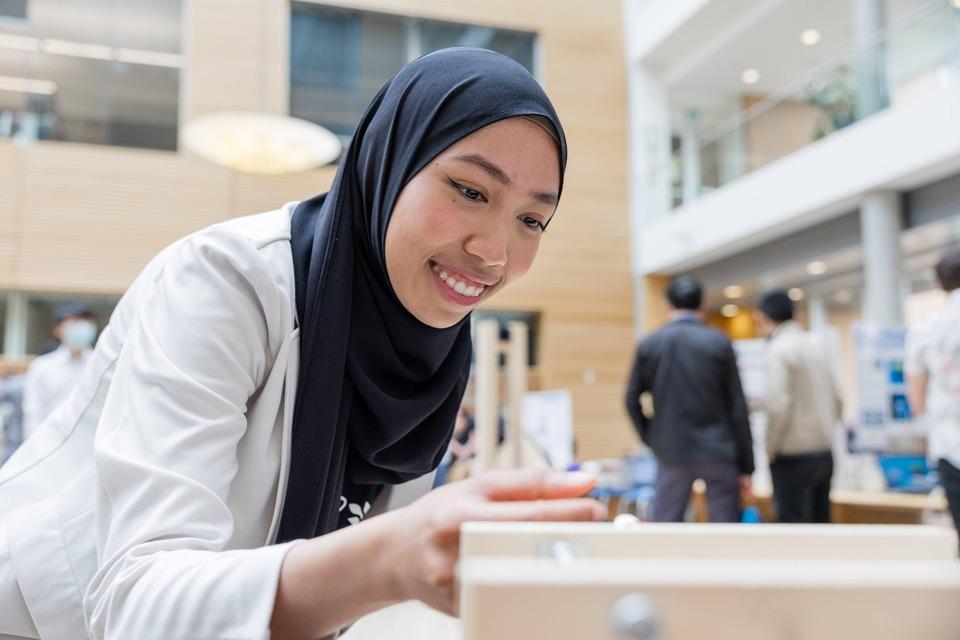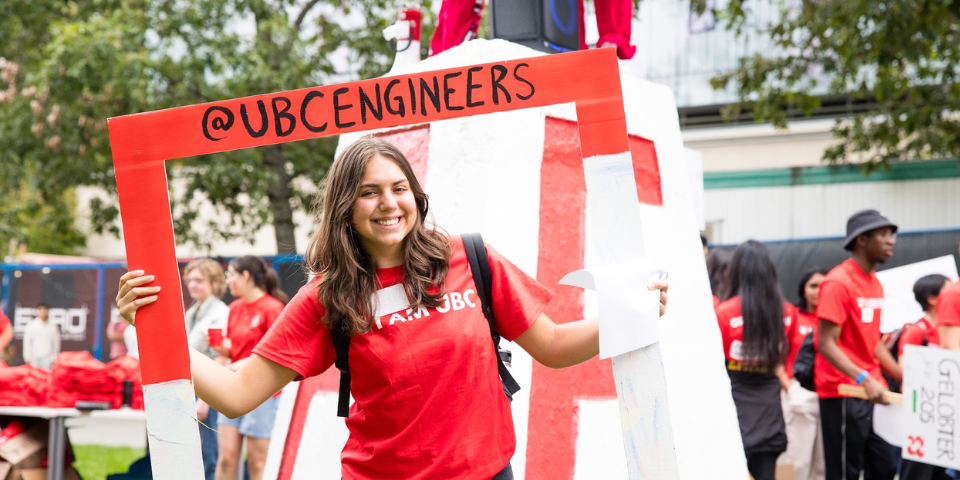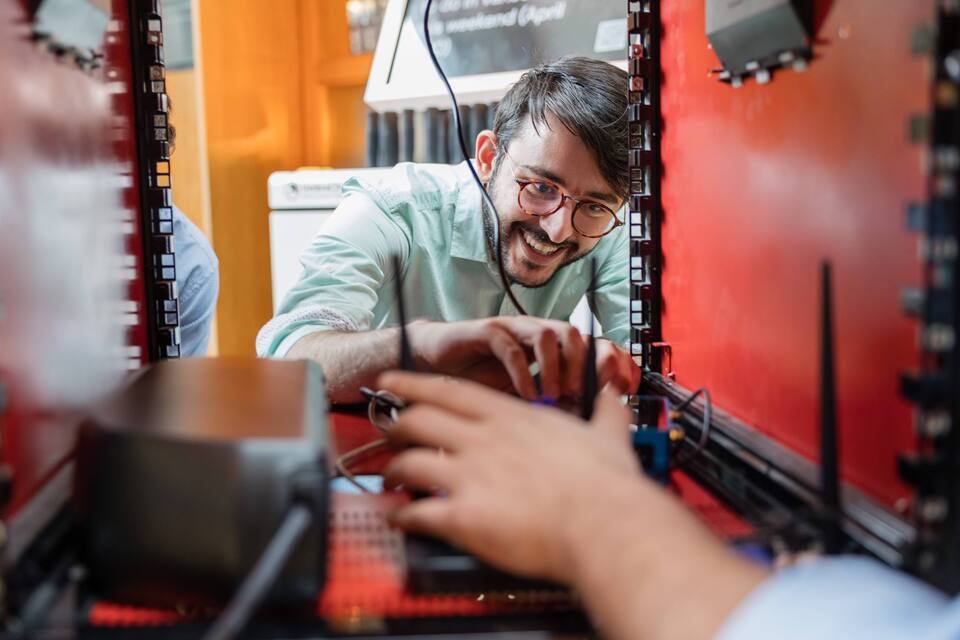
When you study engineering at UBC, you will graduate with a Bachelor of Applied Science. As an applied science, engineering focuses on using scientific knowledge to solve practical, real-world problems.
When you’re an engineering student, your daily routines might look similar to those of students in other faculties. You’ll be attending lectures and diving into concepts in textbooks and online resources. You’ll be writing tests and handing in lab assignments. You’ll be learning formulas and doing practice problems.
But you’ll also be doing something quite different. In many of your courses, you’ll be asked to bring all your knowledge together to work on problems that don’t have a right or wrong answer or an outcome that’s known ahead of time.
This is where things can get really fun and is what makes engineering different from other programs! Starting right in first year, you’ll learn about the engineering design cycle and how to define, explore, create and test ideas to create innovative products, processes and solutions. You’re learning by doing.
And it all culminates in the last year of your degree when you will apply everything you’ve learned in your courses – as well as skills you’ve developed through design teams, co-op work terms and other extracurriculars – to work on a full-year capstone project.
Make an impact while still a student
The result of all this work isn’t a report or lab write-up that will be read by one person. The solution you develop can have a tangible impact. Here are just a few examples from 2025:
Biomedical engineering students worked with the founder and CEO of medical device company FMRK Diagnostic Technologies to develop a point-of-care device to quickly diagnose urinary tract infections and identify the most effective antibiotic treatment.
Mining engineering students worked with Newmont Corporation to assess the feasibility of electrifying its mining fleet for a proposed mine expansion. (And were then flown to the mine site to present their work to the mine manager!)
Environmental engineering students worked with Lululemon to develop a microalgae cultivation and harvesting process to produce a biobased feedstock that could be used to produce nylon.
Software engineering students worked with Korotu Technology, a sustainable finance technology startup to develop a web application to manage drone flight plans for acquiring forest data to support sustainable forest management and conservation.
Engineering physics students worked with Chan Zuckerberg Biohub to design a non-invasive tool to detect malaria.
As these examples show, the innovative solutions developed by UBC Engineering students in their capstone projects are helping leading companies and organizations have a positive impact in the world.
Build your professional network and gain industry knowledge
Throughout the capstone project, you will meet regularly with your project sponsor to define expectations and report on progress. At the end of the project, you will typically present the results of your finding to a larger audience that often includes industry leaders.
This is what makes capstone projects such a great way to build professional connections and learn about the latest industry trends.
As a group of 2024 chemical and biological engineering students said about their work on a capstone project with Teck Resources to convert mine residuals into artificial soil, “We benefited from a strong relationship with Teck Resources, our industry partner. They were fantastic at providing us with data, answering our questions and checking in with us regularly. It enabled us to get a much better sense of the mining industry and what’s being done to operate sustainably.”
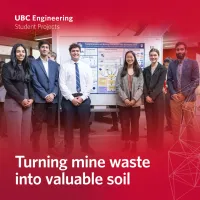
A group of materials engineering students who worked with the Canadian Space Agency to design a pressure vessel for a lunar greenhouse had a similar experience. As they said, “One of the most rewarding aspects of this project was getting to be mentored by Canadian Space Agency experts and understanding the level of detail and rigour expected in real aerospace applications.”

Come to UBC for applied learning
Leading organizations want to sponsor capstone and other industry-driven projects at UBC because they know our students will come up with innovative, high-quality solutions to challenging problems. They recognize us as a leader in educating the next generation of engineers who are able to apply their knowledge to make an impact, even while they are still students. (As you can read in our article Why study engineering? And why study engineering at UBC?, UBC was ranked 36th out of 250 universities in the 2024 Times Higher Education Global Employability Ranking for creating “the most employable graduates.”)
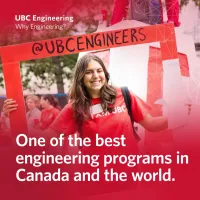
For you as a student, capstone projects are just one of UBC’s many applied learning opportunities that enable you to gain tangible real-world experience – which is both personally rewarding and highly valued by employers.



